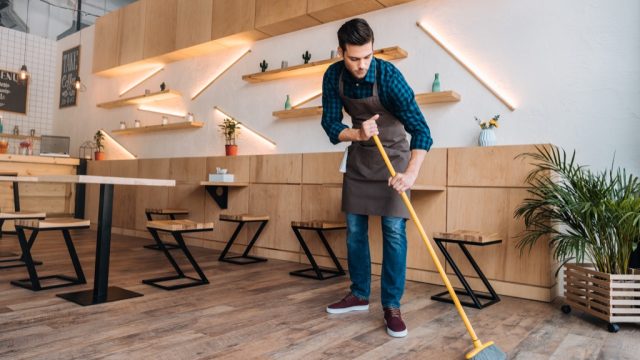This Is the Safest Way to Clean Your Floors

Floors bear the brunt of our messy lives, from muddy boots to spills. And if you want to keep your house clean, they’re the first place you should start. Keeping floors free of dirt is the first step toward a more beautiful, less bacterially-contaminated house.
The first step toward cleaner floors is removing stray dirt and debris. For carpeted floors, this is most effectively done with a vacuum cleaner; for hardwood floors, laminate, or tile, use a broom and dust pan to avoid scratches and dents.
However, to get those floors as clean as possible, brushing away visible dirt won’t cut it. And that dingy mop hanging in your closet? Leave it there. Instead, use a damp or dry cloth to clean them. In fact, wet mopping may do more harm than good. Research conducted at Ulleval University Hospital in Oslo reveals that damp mopping reduced the bacterial colonization on floors by as much as 75 percent, while dry mopping reduced it by 55 percent. Wet mopping, however, had the opposite effect. In fact, wet methods of cleaning increased the amount of colony-forming bacteria by between 35 and 50 percent.
Opting for dry or damp mopping instead of wet has yet another benefit to your floors: it will make them last longer. Wet mopping, which often leaves standing water on your floors, can stain hardwood and laminate flooring. It may even warp them over time.
Your best bet instead of a traditional mop? A disposable microfiber pad. In fact, a study conducted at UC Davis Medical Center reveals that microfiber mops reduced bacterial counts, material costs, and labor time when compared to traditional wet-mopping techniques. When you’re done cleaning, go the extra mile to keep those hardwoods looking bright and lustrous with a wood conditioner. And when you want to make every part of your house safer, from floor to ceiling, make sure you know how to handle The 50 Deadliest Items In Your Home.
To discover more amazing secrets about living your best life, click here to sign up for our FREE daily newsletter!